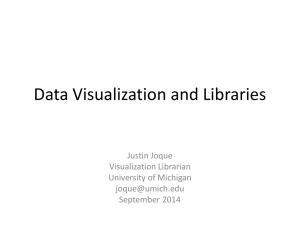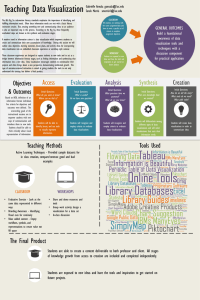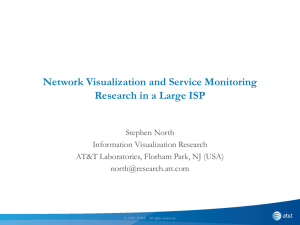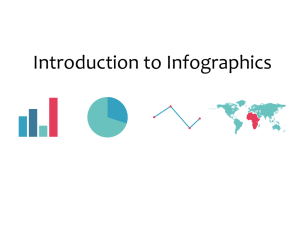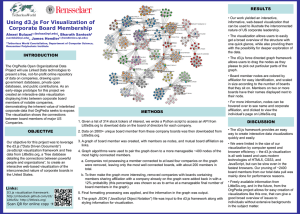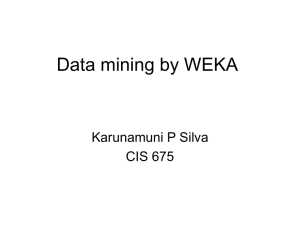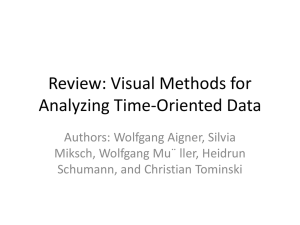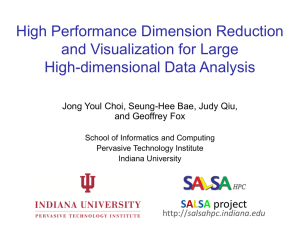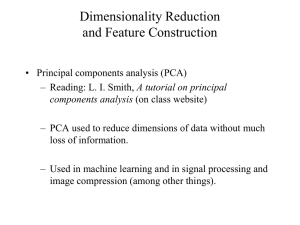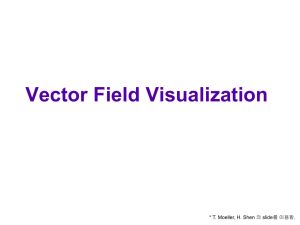Dynamic Visualization of Transient Data Streams
advertisement
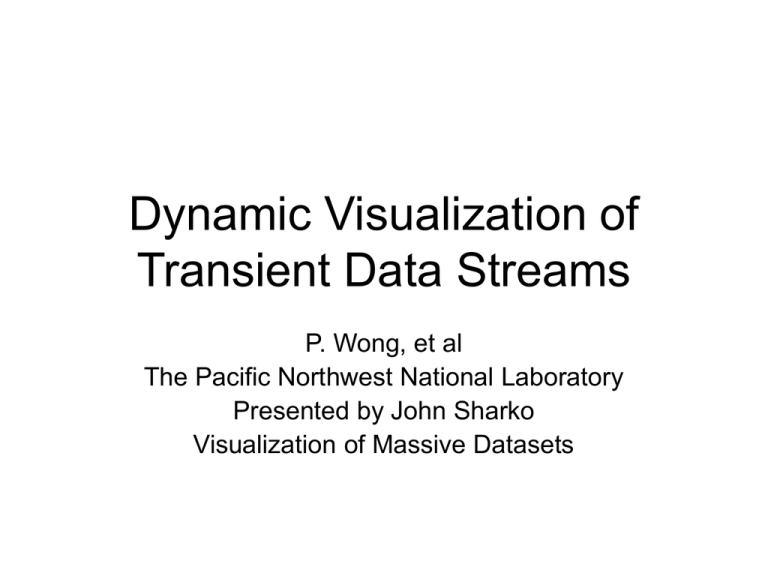
Dynamic Visualization of Transient Data Streams P. Wong, et al The Pacific Northwest National Laboratory Presented by John Sharko Visualization of Massive Datasets Characteristics of Data Streams • • • • Arrives continuously Arrives unpredictably Arrives unboundedly Arrives without persistent patterns Examples of Data Streams • • • • • Newswires Internet click streams Network resource management Phone call records Remote sensing imagery Visualization Problem • Fusing a large amount of previously analyzed information with a small amount of new information • Reprocess the whole dataset in full detail First Objective • Achieve the best understanding of transient data when influx rate exceed processing rate Approach: Data stratification to reduce data size Second Objective • Incremental visualization technique Approach: Project new information incrementally onto previous data Primary Visualization Output Multidimensional Scaling OJ Simpson trial Oklahoma bombing French elections Adaptive Visualization Using Stratification Methods for Adaptive Visualization • Vector dimension reduction • Vector sampling Vector Dimension Reduction Approach: dyadic wavelets (Haar) 200 terms 100 terms 50 terms Results of Vector Dimension Reduction 200 100 Dimensions 50 Results of Vector Sampling 3298 1649 Number of Documents 824 Scatterplot Similarity Matching Scatterplot Similarity Matching Procrustes Analysis Results 200 100 50 All 0.0 (self) 0.022 0.084 1/2 0.016 0.051 0.111 1/4 0.033 0.062 0.141 Incremental Visualization Using Fusion • Reprocessing by projecting new items onto existing visualization • Feature: reprocessing the entire dataset is often not required Hyperspectral Image Processing • Apply MDS to scale pixel vectors • K-mean process to assign unique colors • Stratify the vectors progressively Robust Eigenvectors Generate three MDS scatter plots for each third of the image Robust Eigenvectors (cont’d) Generate MDS scatterplot for entire dataset Robust Eigenvectors (cont’d) Extract points from cropped areas Using Multiple Sliding Windows Sliding Direction Data Stream Long Window Short Window Eigenvectors determined by the long window New vectors are projected using the Eigenvectors of the long window Dynamic Visualization Steps 1. When influx rate < processing rate, use MDS 2. When influx rate > processing rate, halt MDS 3. Use multiple sliding windows for pre-defined number of steps 4. Use stratification approach for fast overview 5. Check for accumulated error using Procrustes analysis 6. If error threshold not reached, go to step 3 If error threshold reached, go to step 1 Conclusions • The data stratification approach can substantially accelerate visualization process • The data fusion approach can provide instant updates
